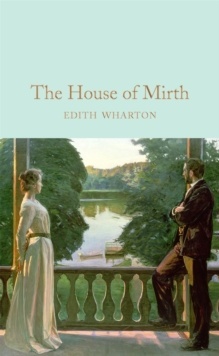The House of Mirth

Editorial Pan
Colección Macmillan's Collector's Library, Número 0
Fecha de edición enero 2017 · Edición nº 1
Idioma inglés
EAN 9781909621978
464 páginas
Libro
encuadernado en tapa dura
Dimensiones 119 mm x 157 mm
Resumen del libro
In The House of Mirth, Edith Wharton gives us a witty and piercingly insightful dark satire about the privileged society of early twentieth-century New York. It a world that inspired the lavish costume drama The Gilded Age, written by Julian Fellowes, the creator of Downton Abbey. Part of the Macmillan Collector's Library; a series of stunning, clothbound, pocket sized classics with gold foiled edges and ribbon markers.
These beautiful books make perfect gifts or a treat for any book lover. This edition features an introduction by novelist Danuta Reah. Lily Bart is twenty-nine, beautiful and charming.
She has expensive tastes, loves to gamble and socializes with the wealthy upper-class families of New York. But her meagre finances are dwindling and her place in society is slipping away from her. Her only hope of security is to find a suitable husband.
However, Lily has an independence of spirit that stands in the way of her committing to the suitors available to her. As her options diminish, her friends become her enemies and her situation grows increasing perilous.
Biografía del autor
Edith Wharton (1862-1937) nació en Nueva York, en el seno de una familia adinerada y distinguida, y es considerada una de las más grandes escritoras estadounidenses. Fue la primera mujer galardonada con un Premio Pulitzer. "La edad de la inocencia" fue llevada a la pantalla por Martin Scorsese en 1993, protagonizada por Daniel Day-Lewis, Michelle Pfeiffer y Winona Ryder. Otras obras de la autora en Alianza Editorial: "Estío", "Ethan Frome" y "Las hermanas Bunner".








